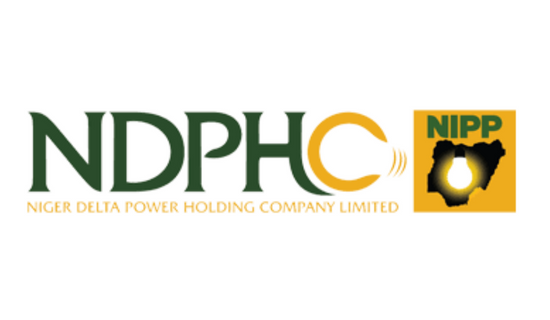The Niger Delta Power Holding Company (NDPHC), burdened by years of underutilized capacity and mounting debt, is embarking on a transformative strategy to revitalize its operations and contribute meaningfully to Nigeria’s power sector. With over 2,000 MW of stranded power, the company is shifting away from its reliance on the centralized electricity market, plagued by revenue shortfalls and market defaults, and embracing a direct sales approach to eligible customers. This new model aims to bypass the inefficiencies of the existing system and secure cost-reflective tariffs, providing NDPHC with the financial stability needed to revive its dormant assets and expand its operations.
The NDPHC’s struggles are rooted in a complex interplay of factors. Despite possessing an installed capacity exceeding 4,000 MW, the company has historically struggled to generate even half that amount. While some plants, like Ihovbor 2, have operated near full capacity, others have remained significantly underutilized, leaving substantial generating potential untapped. This disparity stems from a lack of commercial viability in generating additional power. Consumers have often defaulted on payments, the government has lagged in providing necessary subsidies, and distribution companies (Discos) have been reluctant to absorb additional power due to non-cost-reflective tariffs. This has created a vicious cycle where generating more electricity translates to greater financial losses for the NDPHC.
To address these challenges, the NDPHC, under the leadership of Managing Director/CEO Jennifer Adighije, has embarked on a multi-pronged approach. Recognizing the limitations of the centralized market, the company is prioritizing bilateral agreements with large, creditworthy customers, enabling direct power sales at cost-reflective tariffs. This strategy bypasses the Discos and allows NDPHC to secure a stable revenue stream, insulating it from the financial uncertainties of the broader market. The initiative has gained traction, with the Manufacturers Association of Nigeria (MAN) in Kano expressing keen interest in direct power purchase to address the power challenges hindering local manufacturing.
This new direction, however, is not without its challenges. Discos have voiced their displeasure at the prospect of losing customers to direct transactions with NDPHC. This opposition highlights the potential for disruption in the existing power market dynamics. Furthermore, the success of NDPHC’s strategy hinges on regulatory approval from the Nigerian Electricity Regulatory Commission (NERC) for the bilateral agreements, as well as broader tariff reforms to ensure cost-reflectivity across the sector. Securing NERC’s approval and enacting these reforms will be crucial for NDPHC to fully realize the potential of its direct sales model.
Beyond bilateral agreements, NDPHC is also focused on optimizing its existing assets. A comprehensive audit of the company’s generation assets revealed significant underutilization and operational inefficiencies. By addressing issues such as poor maintenance practices, procurement delays, and gas supply constraints, NDPHC has successfully resuscitated several turbine units across its power plants, adding 625 MW to the national grid. The reactivation of the Alaoji power plant, previously dormant for an extended period, further demonstrates the company’s commitment to maximizing its generating capacity. This proactive approach to asset optimization is crucial for increasing power generation and improving the company’s financial standing.
Looking ahead, NDPHC aims to commercialize approximately 200 MW of its stranded electricity by the end of 2025. This ambitious target underscores the company’s commitment to its new strategic direction. However, significant hurdles remain. The Nigeria Bulk Electricity Trading Plc (NBET) and other entities owe NDPHC close to N600 billion, a substantial debt that hampers the company’s operational capacity. Furthermore, despite owning the largest fleet of generating turbine units in the sector, NDPHC is often relegated to the lowest priority in the dispatch schedule, further contributing to its stranded capacity. Addressing these financial and operational challenges is essential for NDPHC to achieve its long-term goals.
The NDPHC’s transition to direct power sales represents a pivotal moment in its journey. By focusing on commercially viable agreements, optimizing existing assets, and securing regulatory approvals, the company is poised to overcome its historical challenges and emerge as a more robust and financially stable player in Nigeria’s power sector. However, the success of this transformation will depend on navigating the complex political and economic landscape of the power sector, including overcoming resistance from Discos, securing regulatory support, and addressing outstanding debts. By prioritizing collaboration and transparency, NDPHC can build stronger partnerships with stakeholders, including manufacturers, industrial clusters, and government agencies, to ensure the long-term sustainability of its operations and contribute meaningfully to Nigeria’s energy future. The company’s success will not only benefit its own financial health but also contribute to a more reliable and efficient power supply for Nigerian businesses and consumers.


